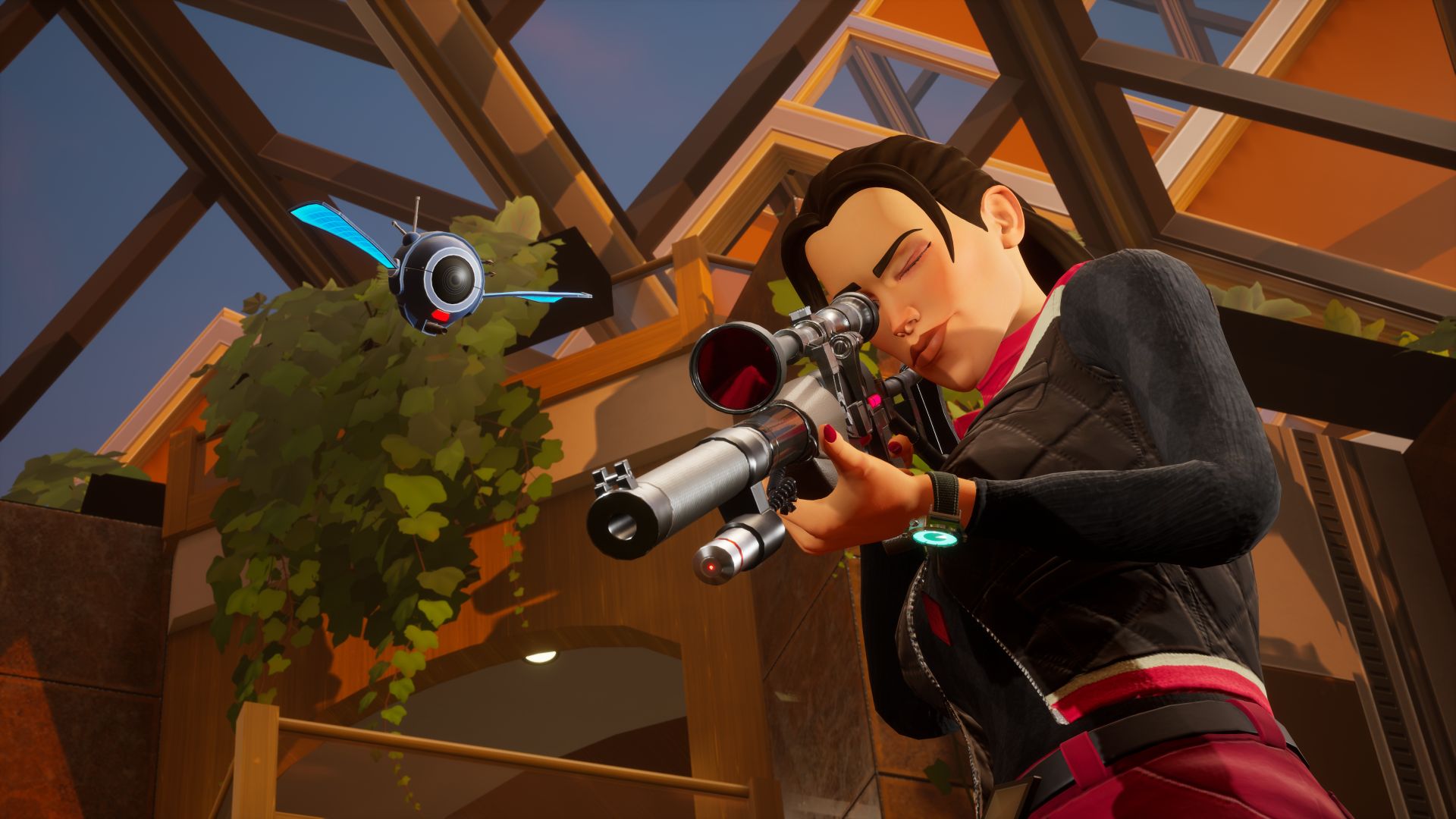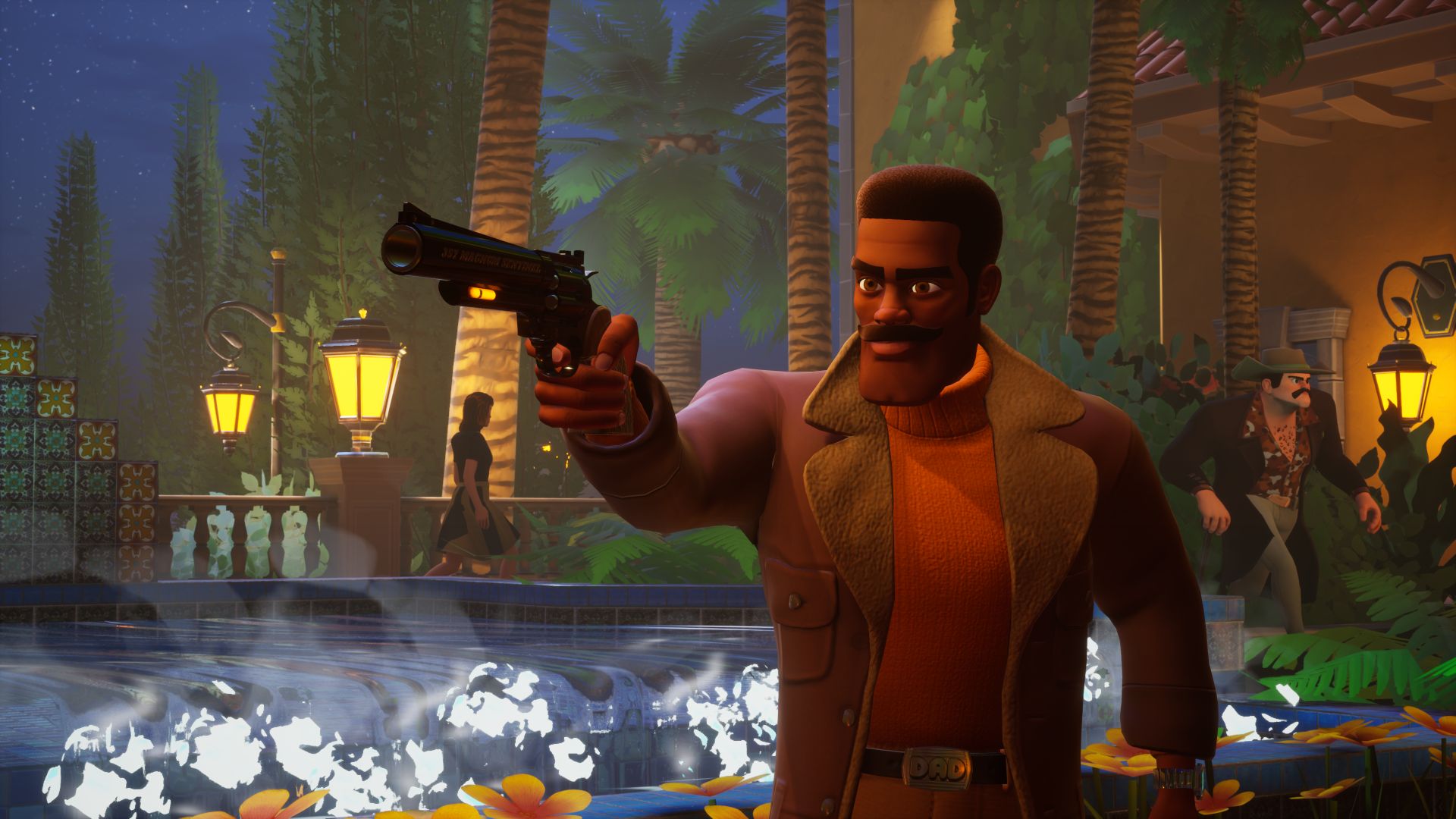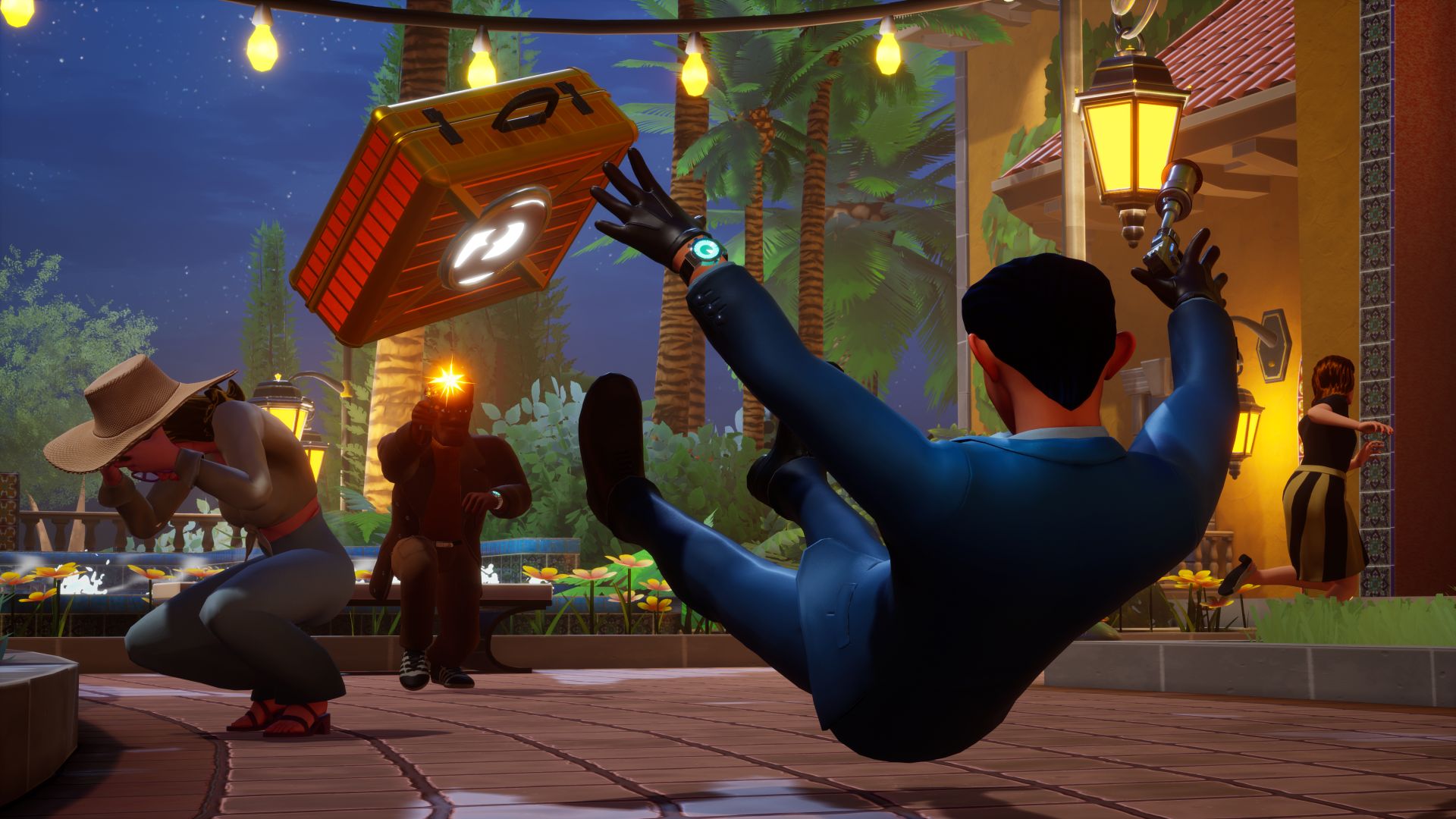How Dark Souls 3 birthed the multiplayer stealth shooter Deceive Inc
Fight unseen

I work the room at a party, looking for all the world – or the sliver of it that’s allowed to see inside this opulent clifftop mansion – like any other guest. Wearing a black dress and disarming cardigan, as if cosplaying a Sim from the period before Maxis hired fashionistas, I stride between tables laden with canapés. “The host is so mysterious,” says a fellow partygoer in a stage whisper. “And clearly not hiding anything.”
In response, I say nothing. Because beneath my flimsy holographic disguise, I’m a beefy spy named Chavez. And while I’m blending with the guests, I’m surreptitiously aiming my high-velocity data transfer goggles over their shoulders, hacking green-screened computers from a safe distance. With enough data, I can break open a security door in another room, bringing me one step closer to the vault buried deep within this private palace.

But I can’t be hasty. Not yet. The truth is, I don’t know whether the nearby industrialist sporting a Stetson and cane is really an AI guest or a rival agent putting on an act as convincing as my own. Or, for that matter, whether the pistol-toting guards on every corner are legit either. There might be suggestions of espionage – Stetson breaking briefly into a skittish jog, perhaps, or hovering near a terminal. But if I open fire, and I’m wrong, every other player in the vicinity will know where I am – my camouflage evaporating in an instant. There are dead giveaways, and then there’s a large man named Chavez materializing in the center of a ballroom, in a tangerine trench coat with a multicolored revolver the length of his leg.
This is the social stealth phase of Deceive Inc – a multiplayer FPS which, for long stretches of a match, plays more like Hitman 3 than Overwatch.

“The original kick for the idea was actually Dark Souls 3 PvP, where you could turn into objects, and there were rings allowing you to look like NPCs,” says Philippe Pelletier Baribault, co-founder and designer of Quebec studio Sweet Bandits. “Playing that back in 2016 was the fire for the concept.”
Now you NPC me
It’s odd to realize that Dark Souls has had a profound impact on the stealth game. It’s not a genre FromSoftware is readily associated with, yet Souls-style invasion mechanics have turned the likes of Watch Dogs 2 and Deathloop into high-consequence games of hide-and-seek. In both examples, the best invaders rely on their understanding of AI behavior – its limitations, its tells – to seep into the peripheral vision of their rival, dismissed and underestimated. So it is in Deceive Inc. A disguise is merely a veneer. It’s up to the wearer to sell the whole package, mingling convincingly with computer-controlled characters, mimicking their robotic movement, and sitting on benches to throw enemies off the scent like Altaïr.
As our first match begins, Pelletier Baribault tells me to expect a lot of tense quiet time. “I think it’s going to be a very careful game,” he says. “because people are playing their first one.” He’s wrong. Within a couple of minutes, a spy from another outfit slips up, and gunshots begin to echo through the lavish hallways and out across the veranda. The noise draws other trios, the way it would in Warzone, and before long the operation has descended into bloody comedy. In the chaos, I spot Pelletier Baribault bouncing on an inflatable cushion. It’s a gadget intended to get you to high places, but he’s using it to evade the sights of an enemy during combat. He looks silly, but he lives.
Get daily insight, inspiration and deals in your inbox
Sign up for breaking news, reviews, opinion, top tech deals, and more.

I’m initially disappointed that the stealth phase has ended so quickly, but I needn’t be. Despite the bodies on the ground and alerted guards, the remaining teams melt away – their holographic disguises reactivating automatically once out of sight – and the jig begins anew.
“You’re going to run out of ammo if you start shooting absolutely every NPC that you think is someone, so you want to be careful,” Pelletier Baribault says. “Taking the first shot and being wrong is very costly.”
Since weapons are typically single-action or semi-automatic, they require deliberate aiming, a la games like Hunt: Showdown. Being out in the open, firing like Bond in an embassy, gives your disguised peers the advantage when lining up shots. In other words, ignore stealth at your peril.
It’s cat and mouse, but everyone’s a cat and everyone’s the mouse
Philippe Pelletier Baribault, designer
“There’s that element of third party that's very scary,” Pelletier Baribault says. “If you get into a fight, is there a spy right next door that’s going to come in and take that advantage? It’s cat and mouse, but everyone’s a cat and everyone’s the mouse.”
Enjoy your trip
There are opportunities to force other players out of hiding. On our way into the vault to grab the briefcase every team is after, I plant a trip wire across the entryway – ensuring that unobservant spies who might follow are jolted out of their disguises and fired on by AI guards, or each other.

Players tend to voluntarily break cover during extraction, too – desperate to stop a rival, whose location is pinged regularly while carrying the briefcase, from getting away in a bulletproof Aston Martin-alike. The final battle tends to be funny, and surprising, and not even a little bit suave.
There’s no doubt I had more fun blending in at the cocktail party than firing slugs at fast-moving targets. The former is where Deceive Inc’s novelty lies, and despite some impactful sound design during gunfights – the pitch rising with each successful shot on target – the combat left me a tad cold. But I know that Sweet Bandits is conscious of finding the right rhythm, the back and forth between social stealth and shooter proper, and trust the studio will land on the right balance – to leave players only intermittently shaken or stirred.

Jeremy is TRG's features editor. He has a decade’s experience across publications like GamesRadar, PC Gamer and Edge, and has been nominated for two games media awards. Jeremy was once told off by the director of Dishonored 2 for not having played Dishonored 2, an error he has since corrected.